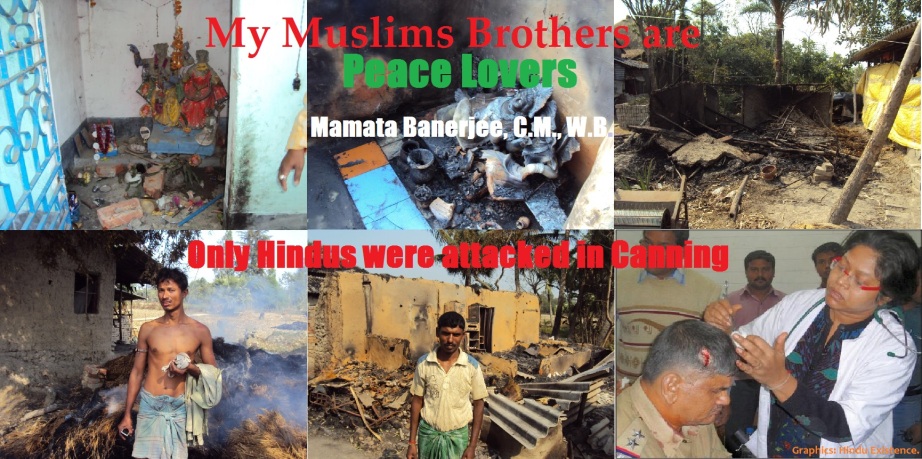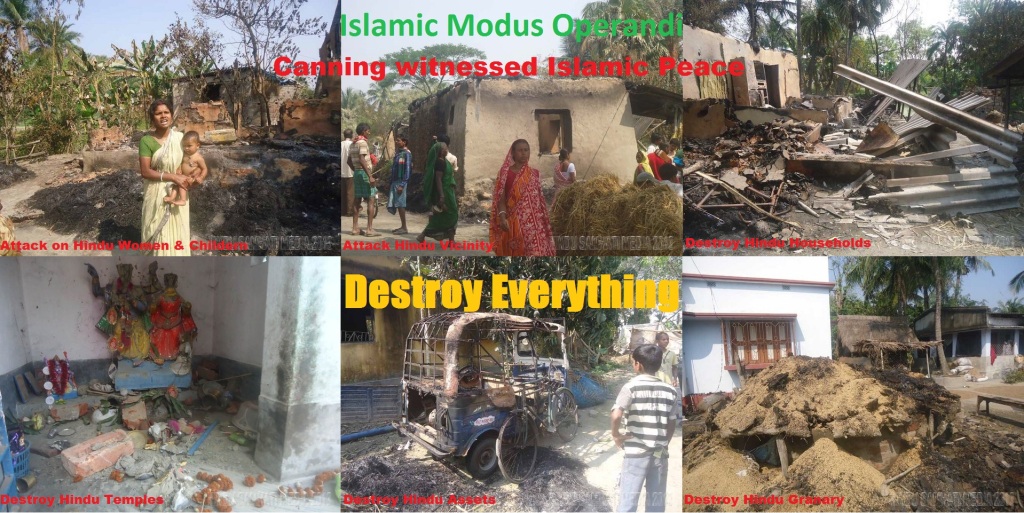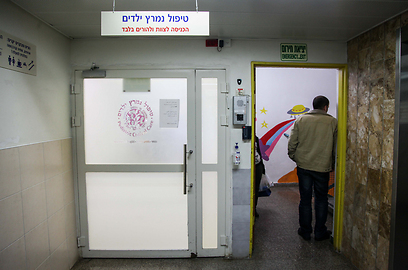COMMENT
Prime Minister Najib Abdul Razak, the vendor of half-baked spin, was at
it again a few days ago when he said the Chinese owed their success to
the BN.
At a 1Malaysia open house, he said BN formulated good
policies and ensured there was harmony in the country and an environment
that "allowed the Chinese to make a good living".
Najib had the cheek to say this.

He
of course wants the Chinese to be thankful to BN and therefore vote for
the coalition in the coming general election. But his half-baked spin
completely ignores the other side of the story.
For instance,
the Chinese also owe it to BN that they became second-class citizens in
their own country because of BN's discriminatory policies - and, let's
not forget, practices.
As a result, the Chinese have to work
harder to succeed. To get places in Malaysian public universities. To
have their children score the highest number of As and still not get
accepted to do, say, Medicine, in these institutions. And therefore be
forced to send them overseas at a much higher cost.
The Chinese
owe it to BN that they were compelled to leave Malaysia to seek fairer
opportunities overseas, some never to return, and thereby contributing
to a huge brain drain for which Malaysia is now paying the price.
Many
who are now settled overseas may indeed be thankful that they left, but
I'm sure Najib is not looking to them for gratitude. Some of them won't
be eligible for voting, anyway, having taken citizenship in their
countries of adoption.
The Chinese also owe it to BN that to
take on business projects of sizable proportions, they have to pay
kickbacks - some to BN bigwigs themselves, some to their cronies.
Impossible to rise to highest echelons
The Chinese owe it to BN that they find it virtually impossible to rise
to the highest echelons of public service - in the judiciary, the
military, the police, the universities, the civil service. Not because
they don't have the merit to fill these positions; in fact, they do,
which therefore makes it even more unjust and painful.
Can Najib
name a single Chinese vice-chancellor in a Malaysian public university?
Can a Chinese person become inspector-general of police or admiral of
the fleet or chief justice?
Najib should note that despite the
barriers, the Chinese accepted their lot. And many Chinese - for
whatever warped or bewildering logic - actually supported BN throughout
the times they were marginalised!

Najib should watch what he says in the run-up to the general election, especially if he is hoping to win Chinese support for BN.
As it is, many analysts believe that about 70 to 80 percent of the
Chinese are not in favour of the ruling party. If he wants to win at
least some over, he needs to say the right things. More than that, he
needs to do the right things. Although even then, one wonders if it
might not be too late.
Many Chinese still remember what he
reportedly said in 1987, on the eve of Operasi Lalang at the Umno Youth
rally in the TPCA Stadium. As the Umno Youth chief then, he displayed
ethnocentric gusto in unsheathing his keris and announcing that it would
taste Chinese blood.
It might have been an act of foolish
bravado, but it still resonates among some Chinese today. Considered
together with the video that is making the rounds again of his address
to the Umno and Malay NGOs audience at Putra World Trade Centre (PWTC) a
few days after Bersih 2.0, in which he said, with much tribal sound and
fury, "We will show them whose country this is!", many wonder if the
leopard has changed its spots.
For all his talk of 1Malaysia, Najib is still an ethnocentrist at heart.
He has said he will meet the Chinese educationist group Dong Zong to
discuss its demands in regard to Chinese education. In all likelihood,
he will agree to meet some, if not all of them, as a last-ditch measure
to win Chinese votes. He might well declare the government's recognition
- finally - of the United Examination Certificate (UEC), a dream the
Chinese educationists have been pursuing for the longest time.
Be wary of Najib's sweet talk
If this consequently prompts Dong Zong to endorse Najib and BN for the
coming general election, it could sway a good number of Chinese votes in
the direction of BN. Then, like they did in 1999 when they saved Dr
Mahathir Mohamad's bacon by strongly supporting his coalition when the
Malays were swinging away from him, they could hand BN a victory... and,
who knows, maybe even a two-thirds majority, which is what Najib
desperately covets.

However,
this is going to be a crucial general election. It is the one time when
real change for the country can come about with a change of government.
The
Chinese need to consider carefully about giving their vote to BN. They
need to consider the long-term effects of another BN victory. They need
to weigh the possibility of real reform in the event of BN being booted
out and a new coalition taking over that could bring positive change.
They
need to be wary of Najib's sweet talk and his gifts. If he gives them
government recognition of the UEC, more independent Chinese schools,
whatever, they might want to just accept these politely, say thank you
and think of voting according to what they think is right.
Dong
Zong, on its part, should remain neutral and not take a stand by
endorsing BN. For if it does and Pakatan Rakyat wins the general
election, it would find itself in an awkward position.
The
Chinese have a big role to play now in this coming general election.
Najib can say anything till he is blue in the face, but they have to
weigh the truth or lack of it in what he says.
Above all, they
must not forget about the corruption that has been rampant under BN rule
for decades. And the rent-seeking. And the slow growth of our GDP since
1980 in comparison with South Korea, Taiwan, Singapore, etc. These
affect the whole country, not just the Chinese, and are therefore all
the more important.
When it comes to the crunch, the Chinese must vote for only one thing - a better Malaysia.
KEE THUAN CHYE is the author of the bestselling book ‘No More Bullshit,
Please, We're All Malaysians', and the latest volume, ‘Ask for No
Bullshit, Get Some More!'
 Boustead
Holdings Bhd's acquisition of Deepak Jaikishan's Astacanggih Sdn Bhd
included a clause prohibiting Deepak from speaking about the deal
without Boustead's permission.
Boustead
Holdings Bhd's acquisition of Deepak Jaikishan's Astacanggih Sdn Bhd
included a clause prohibiting Deepak from speaking about the deal
without Boustead's permission.






 Speaking at a press conference at party headquarters in Petaling Jaya, Rafizi (left)
revealed that he found this out after given access to two agreements,
one a land development deal between Raja Ropiaah’s Awan Megah,
Boustead’s wholly-owned subsidiary Bakti Wira Sdn Bhd and Astacanggih
Sdn Bhd, which is owned by controversial carpet trader Deepak Jaikishan;
and the second, an agreement to buy out Astacanggih from Deepak.
Speaking at a press conference at party headquarters in Petaling Jaya, Rafizi (left)
revealed that he found this out after given access to two agreements,
one a land development deal between Raja Ropiaah’s Awan Megah,
Boustead’s wholly-owned subsidiary Bakti Wira Sdn Bhd and Astacanggih
Sdn Bhd, which is owned by controversial carpet trader Deepak Jaikishan;
and the second, an agreement to buy out Astacanggih from Deepak.






 The
Hindraf blueprint is a systematic and verbal expression of the
yearnings and aspirations of the Indian poor and marginalised for
justice, for rights, for dignity and for an even shot at life in this
country of ours.
The
Hindraf blueprint is a systematic and verbal expression of the
yearnings and aspirations of the Indian poor and marginalised for
justice, for rights, for dignity and for an even shot at life in this
country of ours. Of
the businesses and contracts awarded by the local authorities, state
governments, federal government and federal agencies and all GLCs, 10
percent must go to Indian businesses, which must also be provided with
equal participation opportunities in all entrepreneur development
programmes.
Of
the businesses and contracts awarded by the local authorities, state
governments, federal government and federal agencies and all GLCs, 10
percent must go to Indian businesses, which must also be provided with
equal participation opportunities in all entrepreneur development
programmes. Effective
measures must be put into place to stop all extra judicial killings of
citizens in the custody of the Malaysian police.
Effective
measures must be put into place to stop all extra judicial killings of
citizens in the custody of the Malaysian police.
 Much
good to the national polity has since resulted from that and Hindraf
must be credited with having pulled off an event that helped produce an
election result of great effect to the nation.
Much
good to the national polity has since resulted from that and Hindraf
must be credited with having pulled off an event that helped produce an
election result of great effect to the nation. The
problems of the Indian poor, who admittedly form a disproportionately
large percentage of those households earning RM1,500 and less a month,
are urgent, but no more so than that of the Malay, Chinese, Dayak and
KadazanDusunMurut poor.
The
problems of the Indian poor, who admittedly form a disproportionately
large percentage of those households earning RM1,500 and less a month,
are urgent, but no more so than that of the Malay, Chinese, Dayak and
KadazanDusunMurut poor. Oleh: Nurul Izzah Anwar
Oleh: Nurul Izzah Anwar
 He
of course wants the Chinese to be thankful to BN and therefore vote for
the coalition in the coming general election. But his half-baked spin
completely ignores the other side of the story.
He
of course wants the Chinese to be thankful to BN and therefore vote for
the coalition in the coming general election. But his half-baked spin
completely ignores the other side of the story. Najib should watch what he says in the run-up to the general election, especially if he is hoping to win Chinese support for BN.
Najib should watch what he says in the run-up to the general election, especially if he is hoping to win Chinese support for BN. However,
this is going to be a crucial general election. It is the one time when
real change for the country can come about with a change of government.
However,
this is going to be a crucial general election. It is the one time when
real change for the country can come about with a change of government.

 The
workers displaced from the plantations have been force-fitted into the
urban community. They now constitute a significant section of the new
urban poor and underclass and have become individually indistinguishable
in the overall population segment of the Indian poor, although they are
the largest part of that segment.
The
workers displaced from the plantations have been force-fitted into the
urban community. They now constitute a significant section of the new
urban poor and underclass and have become individually indistinguishable
in the overall population segment of the Indian poor, although they are
the largest part of that segment. For
this, training opportunities in the various skills required for the
expanding Malaysian economy must be provided through placements at the
176 Giat Mara centres and the 78 community colleges around the country,
with the financial support required provided as well.
For
this, training opportunities in the various skills required for the
expanding Malaysian economy must be provided through placements at the
176 Giat Mara centres and the 78 community colleges around the country,
with the financial support required provided as well. Temples
are a significant part of Hindu life. In the estates, the managements
recognised the need for and role of these temples, which have been
destroyed or are facing destruction after the estates were dismantled or
cleared for the various other developments.
Temples
are a significant part of Hindu life. In the estates, the managements
recognised the need for and role of these temples, which have been
destroyed or are facing destruction after the estates were dismantled or
cleared for the various other developments. All
those without blue MyKad and birth certificates should have their MyKad
and birth certificates issued, with the simplified requirement of just
two other fellow Malaysians making a statutory declaration of their
knowledge of the birth and parentage of the individuals concerned.
All
those without blue MyKad and birth certificates should have their MyKad
and birth certificates issued, with the simplified requirement of just
two other fellow Malaysians making a statutory declaration of their
knowledge of the birth and parentage of the individuals concerned. These
Tamil primary schools should be provided with land, buildings,
amenities and facilities, located and relocated according to
concentrations of the catchment population and have trained and graduate
teachers on par with the national schools.
These
Tamil primary schools should be provided with land, buildings,
amenities and facilities, located and relocated according to
concentrations of the catchment population and have trained and graduate
teachers on par with the national schools.



